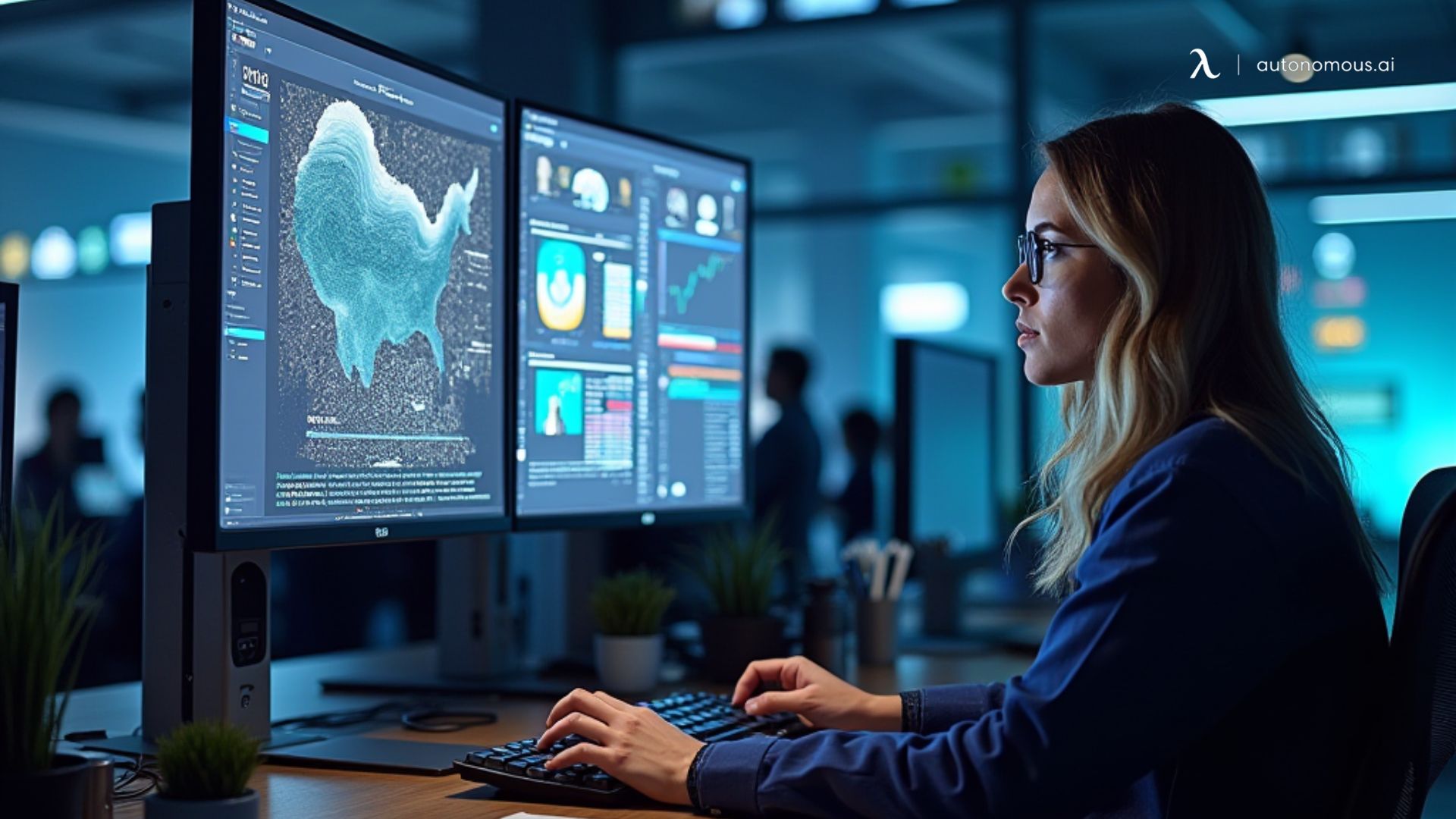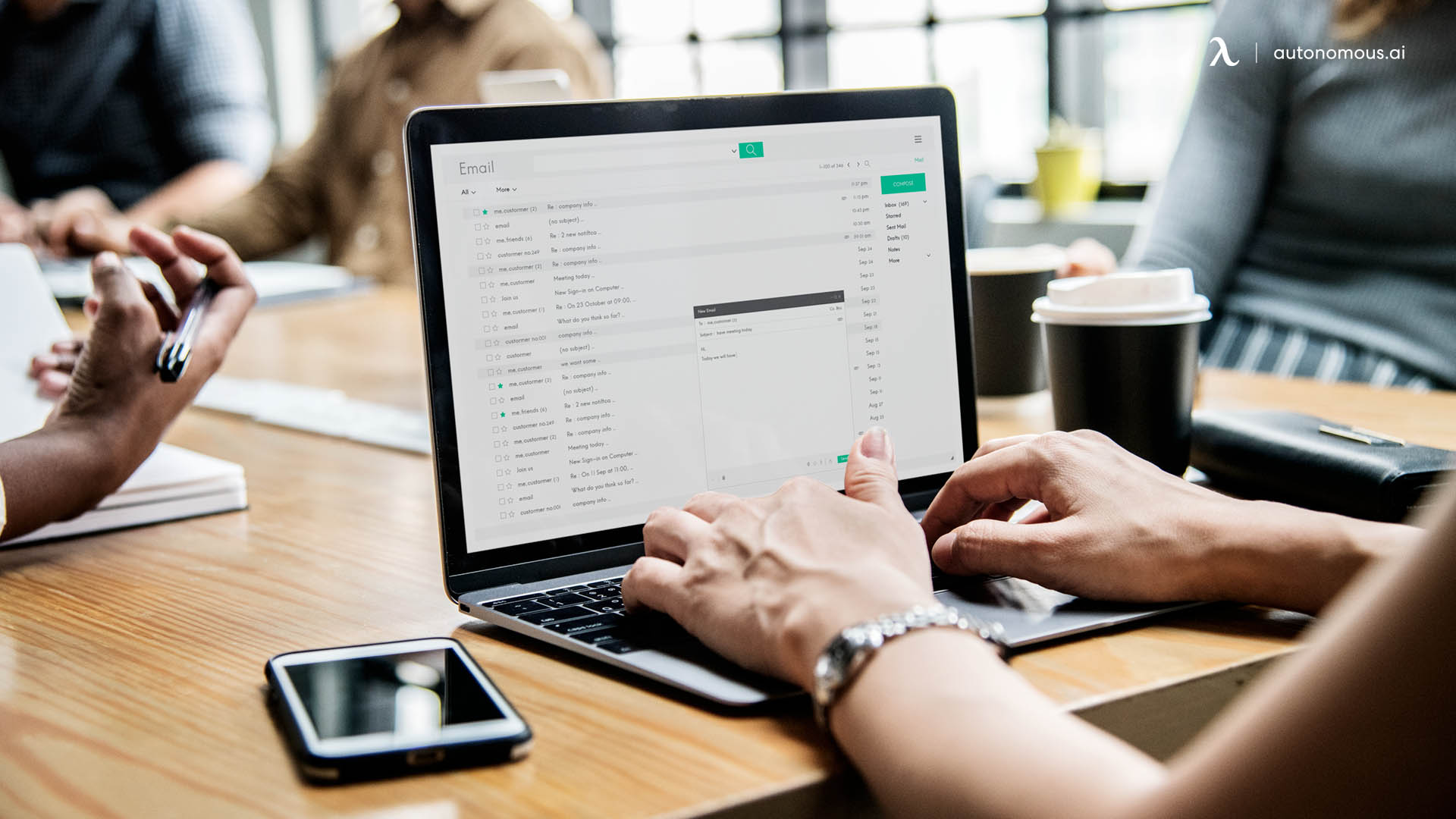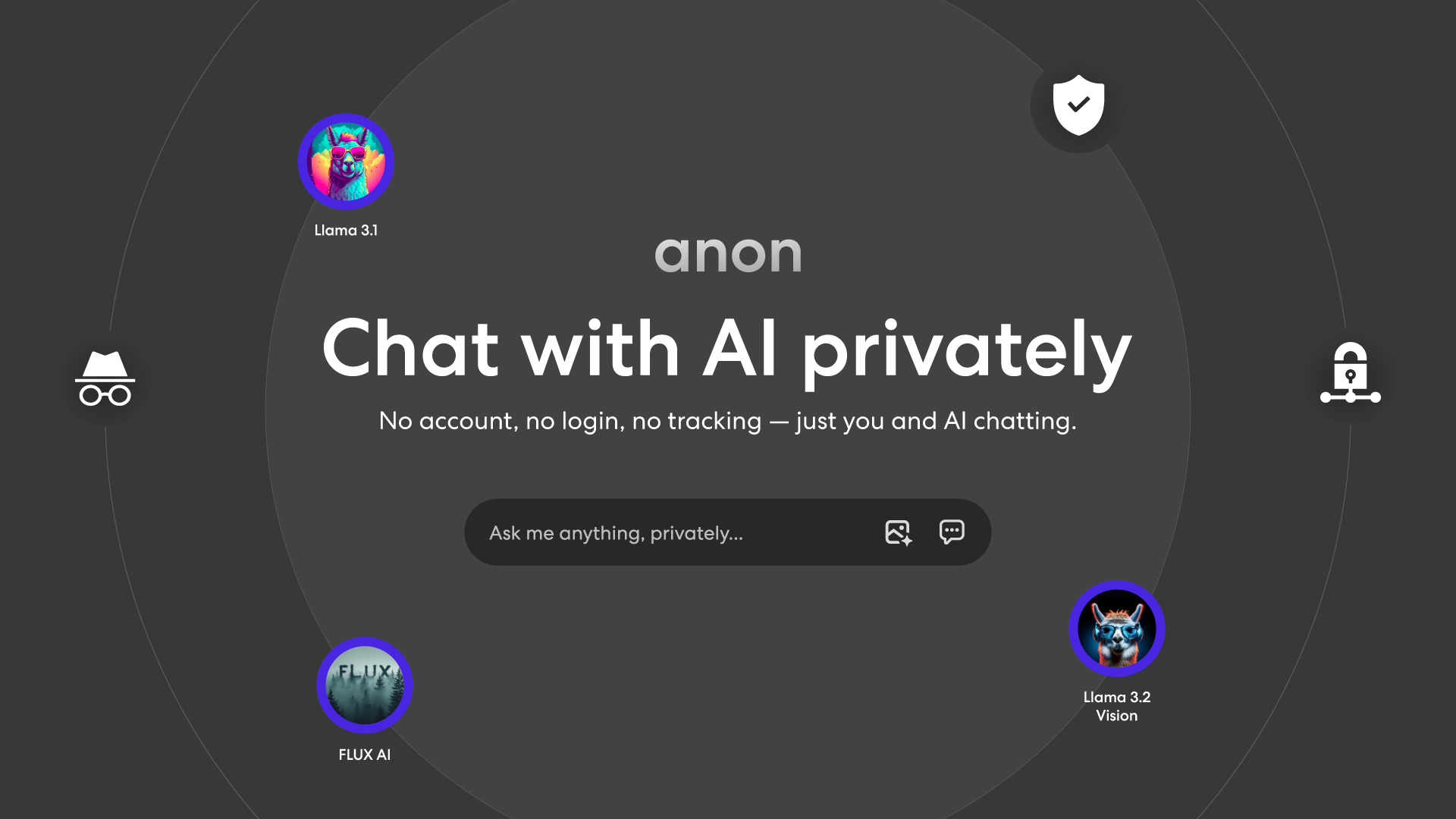
Curious About Private AI Chat? Here's What You Need to Know
Table of Contents
In an age where data privacy is increasingly important, private AI chat offers a new, secure way to engage with artificial intelligence. With the growing trend towards privacy-first technology, AI enthusiasts and businesses alike are looking for solutions that keep their data safe. Private AI chat platforms are now leading the charge by enabling users to maintain control over their personal and organizational information.
This article explores the future of private AI, the elements that make AI truly private, the key differences between private and public AI, and how AnonAI is setting a new standard in privacy-focused AI chat.
Trends of Privacy in AI: Private AI Is the Future of AI
As we dive into the digital age, the demand for privacy has surged. Users are increasingly concerned about how their data is collected, stored, and used, especially in AI applications. From tech giants to small businesses, organizations are making shifts toward private AI chat solutions that prioritize data security and user autonomy.
Private AI represents a new frontier where AI is developed, deployed, and utilized with a core focus on user privacy. For individuals and companies alike, this trend promises not only enhanced security but also the flexibility to tailor AI interactions to specific needs, without sharing data with external entities.

What Makes AI Private?
For an AI system to be considered private, several core features must be present. These include exclusive data usage, data control, and model customization. In essence, private AI chat ensures that users’ data remains exclusively theirs, with no risk of exposure to third parties or external systems. Let's dive into what sets private AI chatbots apart from their public counterparts.
1. Models Trained Exclusively on Your Data
In private AI, models are custom-trained on data specific to the user or organization, ensuring the results are highly relevant and personalized. Unlike public AI, which often relies on vast amounts of generalized data from diverse sources, private AI leverages data from a controlled environment.
2. Data Never Leaves Your Control
A defining feature of private AI is the user's control over data storage and usage. With private AI chat, data is stored securely, often on local devices or secure servers that the user or organization fully controls. This setup ensures that no data leaves the secure perimeter established by the user.
3. AI Models Are Unique to Your Organization and Never Shared
In a private AI setup, models are not shared across multiple users or organizations. This means that each AI model is tailored specifically to a single entity's needs, enhancing privacy and personalization. As a result, users can trust that their unique model won’t be influenced by other data sources or entities.

Private AI Chat: 3 Core Factors
For those considering adopting private AI chat solutions, it's essential to understand the core components that guarantee privacy. Here are three primary factors that distinguish private AI chat from other AI solutions.
1. Models Exclusively Trained on Your Data
Private AI chat models are tailored using only the data you provide. This training ensures that the model adapts to your specific needs and reflects your personal or organizational requirements, resulting in a more relevant and personalized AI experience.
2. Data Security and Local Storage
Private AI ensures that your conversations and data are stored securely, often directly on your device or within a secure server that you control. This guarantees that your information is not accessible to third parties, providing peace of mind in knowing that your data remains protected.
3. Unique Models Customized for Your Use
Private AI systems are not one-size-fits-all. Instead, they are specifically configured for individual users or organizations. This customization ensures that the AI understands and aligns with the specific needs, preferences, and requirements of its user.

Private AI vs. Public AI: 5 Key Differences
While both private and public AI have their benefits, private AI is often the preferred choice for those who prioritize data security and control. Here are five key differences between private and public AI.
1. Usage
Public AI platforms, such as ChatGPT, Gemini, and others, are designed for widespread, general-purpose use. They are built to handle a variety of queries from a diverse user base, providing generic responses that work across many contexts. Public AI is ideal for broad applications like answering general knowledge questions, casual conversations, and entertainment purposes.
Private AI, on the other hand, is tailored specifically to a single user or organization. It is built with particular use cases in mind, often focused on highly specialized tasks that require in-depth knowledge of a specific subject or context. For instance, a private AI could be designed exclusively to manage customer service for a specific business, handling sensitive customer data and providing responses aligned with the company’s policies and voice.
2. Use Case
Public AI is typically aimed at casual users, content creators, and developers who need a quick and easy-to-access AI tool like ChaTGPT. It is flexible and can be applied to a wide range of general scenarios, such as generating text, summarizing articles, or answering FAQs. However, it might lack the depth and specificity required for more sensitive applications due to its generalized training.
Private AI shines in scenarios where data sensitivity, confidentiality, and customization are priorities. For example, it’s often deployed in healthcare, finance, legal services, or internal business operations where the AI needs to be finely tuned to adhere to industry regulations, corporate standards, and privacy requirements. Private AI enables organizations to develop highly specific use cases, leveraging unique datasets and insights that would not be relevant or accessible to public AI.

3. Data Privacy
Public AI generally operates on data that is stored and processed on centralized servers. While many providers claim to have secure data practices, users still risk exposing personal information, as public AI platforms may store or analyze data inputs for continuous improvement or quality control purposes. Additionally, these platforms often collect metadata, which can include user behavior and interaction details, raising concerns about data privacy.
Private AI prioritizes data security, ensuring that all data remains within the user’s control. Typically, data is processed locally or on secure servers owned by the organization, preventing exposure to third parties. The AI model is trained exclusively on data provided by the user or organization, with strict protocols in place to ensure compliance with data protection regulations like GDPR. This means that sensitive information remains private, as the data used by the AI never leaves the secure environment.
For organizations and individuals concerned about privacy, private AI provides an extra layer of security that public AI cannot offer. To further understand how AI tools can be applied in secure environments, take a look at our guide to AI in private equity that enhances productivity without compromising privacy.

4. Tailored Solutions
Public AI solutions are often limited in their customization options. They are trained on broad datasets and provide generic answers that may not align perfectly with the needs of every user. Customization, if available, usually requires advanced knowledge of programming or access to specialized tools, which can be costly and time-consuming.
Private AI, conversely, allows for deep customization, meaning the AI can be tailored to suit specific workflows, preferences, and requirements of a particular user or organization. This personalization ensures that the AI behaves in a way that is consistent with the desired outcomes, providing not just accurate but also contextually relevant responses. Businesses can also modify the AI’s tone, language style, and decision-making processes to ensure alignment with brand values and operational goals. This level of customization is especially useful for organizations looking to create a unique customer experience or streamline internal processes.
5. Cost
Public AI is often available on a freemium basis, making it accessible to a broad audience. While many advanced features may require a paid subscription, the cost is generally lower compared to private AI, since public AI solutions are shared across numerous users and are not specifically tailored for individual needs.
Private AI, however, typically involves higher initial and ongoing costs. These expenses are associated with developing, training, and maintaining a customized AI model. There may also be costs related to secure data storage, infrastructure, and compliance with data protection regulations. While the cost can be significant, many organizations find it worthwhile due to the enhanced security, control, and customization that private AI offers. These investments can lead to long-term cost savings by increasing efficiency, reducing data breach risks, and improving customer satisfaction through tailored interactions.

To learn more about the advantages and considerations of adopting different types of AI, check out our comprehensive comparison on Alpaca vs. Llama AI or llama vs. ChatGPT vs. Claude, which provides insight into various AI tools’ functionalities.
AnonAI: Private AI Chat
Take control of your ideas and innovations with AnonAI, a private AI chatbot that prioritizes both privacy and freedom. AnonAI allows users to engage in open, anonymous AI private conversations without worrying about data privacy. Here’s how AnonAI sets itself apart from other AI chat platforms:
Private and Anonymous Chats
With AnonAI, you can chat privately without needing to create an account or log in. This means no tracking, no data mining, and no storing of your conversations on external servers. Your conversations stay on your device, encrypted and safe.
Judgment-Free Conversations
AnonAI provides a safe space where users can express their ideas and thoughts without fear of judgment. Whether you’re brainstorming new concepts, asking sensitive questions, or simply exploring different topics, AnonAI offers a private, supportive environment for all your AI interactions.

For more information about the best AI tools that prioritize user privacy, explore our recommendations for:
- AI tool for writing
- AI tool for coding
- AI tools to generate images
- AI tools for students
- AI tools for Marketing
- Private AI image generator
Conclusion
Private AI chat solutions are transforming how we interact with technology. By ensuring data privacy, offering personalized experiences, and supporting unique use cases, private AI chat, like AnonAI, allows users to explore the full potential of AI without compromising on privacy. As the trend towards privacy-focused technology continues to grow, private AI chatbots are sure to become an essential tool for both individuals and organizations.
Get exclusive rewards
for your first Autonomous blog subscription.
Spread the word
You May Also Like




-7512dd9e-3510-42ed-92df-b8d735ea14ce.svg)


